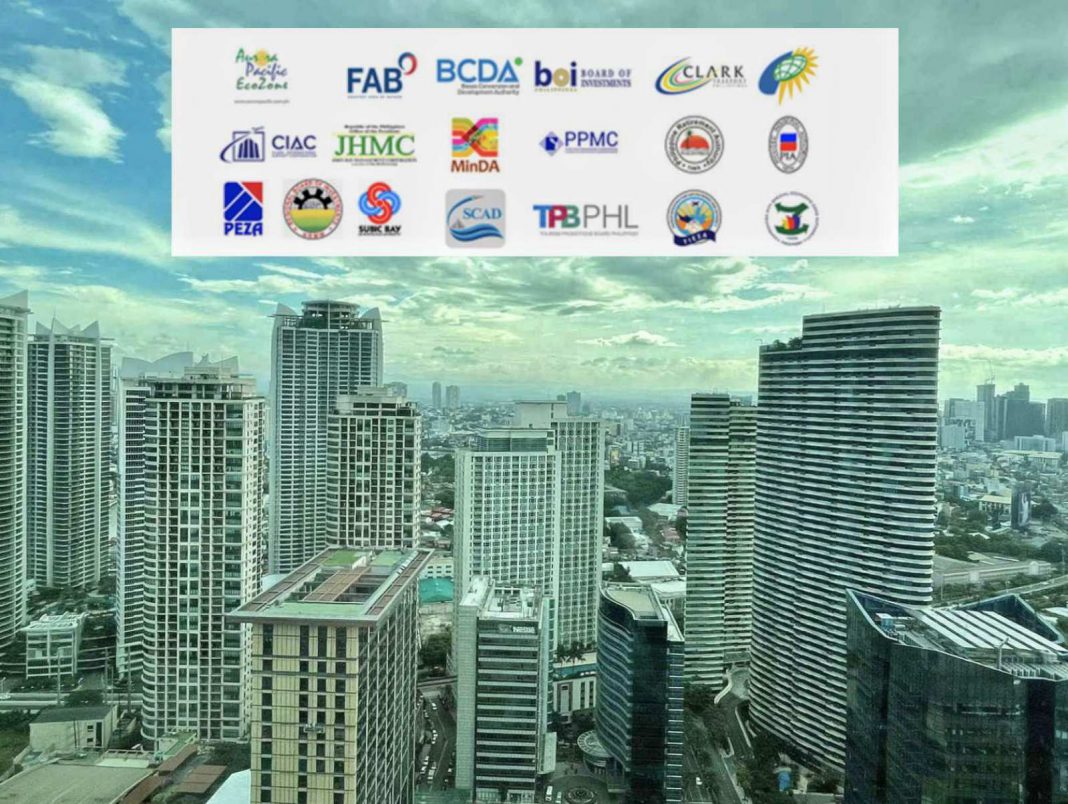Image from THEPHILBIZNEWS/MAS
The country’s Investment Promotion Agencies (IPAs) and key industry associations released their respective statements of support backing the Philippines’ participation in the Regional Comprehensive Economic Partnership (RCEP) Agreement, which entered into force early this year.
Investment Promotion Agencies and industry stakeholders back RCEP ratification
Citing that the RCEP Agreement will allow firms based in the country, particularly those geared towards exports, to benefit from the lowering of trade barriers, and improved market access for goods and services in other fourteen (14) export destinations, the following IPAs and industry groups urged Senators of the 18th Congress to concur with the country’s ratification:
Business Chambers and Industry Associations
- Philippine Exporters Confederation, Inc. (PHILEXPORT)
- Philippine Chamber of Commerce and Industry (PCCI)
- Australian-New Zealand Chamber of Commerce Philippines (ANZCHAM)
- Japanese Chamber of Commerce and Industry of the Philippines, Inc. (JCIPPI)
- Joint Foreign Chambers of the Philippines (JFC)
- Garment Business Association of the Philippines (GBAP)
- Confederation of Wearables Exporters of the Philippines (CONWEP)
- Coalition of Philippine Manufacturers of PPE (CPMP)
- Canned Sardines Association of the Philippines (CSAP)
- Tuna Canners Association of the Philippines (TCAP)
- Federation of Philippine Industries, Inc. (FPI)
- Aerospace Industries Association of the Philippines (AIAP)
IPAs
- Authority of the Freeport Area of Bataan (AFAB)
- Aurora Pacific Economic Zone and Freeport Authority (APECO)
- Board of Investments (BOI)
- Clark Development Corporation (CDC)
- Cagayan Economic Zone Authority (CEZA)
- John Hay Management Corporation (JHMC)
- Philippine Economic Zone Authority (PEZA)
- Poro Point Management Corporation (PPMC)
- Regional Board of Investments-BARMM (RBOI-BARMM)
- Subic Bay Metropolitan Authority (SBMA)
- Subic-Clark Alliance for Development Council (SCAD)
- Zamboanga City Special Economic Zone Authority (ZCSESA)
In the call to the Philippine Senate, industry groups and IPAs cautioned that further delay in ratifying the Agreement may result in losing growth momentum and cast doubts in the region on the Philippines’ openness to trade and investment.
“The business community hopes that the Senate will immediately concur the ratification of RCEP. We definitely don’t want to be left behind in this area. This is something that we need to take advantage of to help in our much-needed economic growth and recovery,” Philippine Chamber of Commerce and Industry (PCCI) president George T. Barcelon said.
“The RCEP region remains to be a strong bastion of economic activities and opportunities as trade and investment shift to Asia. Thus, given the extent of economic activities in the region, the Philippines cannot afford to delay or not participate in this free trade deal when all our neighbors in Southeast Asia are reaping the advantages of the Agreement,” wrote PEZA Director General Charito Plaza, among other IPA heads.
RCEP to complement ongoing reforms
With the enactment of the Corporate Recovery and Tax Incentives for Enterprises Act (CREATE Act) in March 2021, passage of amendments to the Retail Trade Liberalization Act in December 2021 and ongoing consolidation of the final amendments to the Public Service Act under the Bicameral Conference Committee, RCEP strengthens our domestic efforts to improve the business environment by complementing ongoing legislative reforms. These together sends a signal to the international community of the country’s continued commitment to provide a more conducive business environment, strengthen services sector niche, and create employment amidst the ongoing pandemic.
By outlining the existing legal regime in the conduct of services trade and investment through Schedules of Specific Commitments and Reservation Lists of Parties, RCEP provides the assurance that the existing rules and disciplines in doing business in the country, including the allowed foreign equity participation (FEP) in various key sectors will not be changed arbitrarily.
This will help encourage inflow of foreign investments, facilitates an opportunity to partner and form joint ventures within the region, and allows greater participation of more service providers in vital sectors of the country such as manufacturing, creative sectors, financial services, aerospace and shipbuilding sector, research and development (R&D), IT-BPO, professional services, education services, and energy, among others.
Included in the country’s commitment under RCEP is to promote collaboration between local universities and foreign higher education institutions consistent with the Transnational Higher Education Act (Republic Act No. 11448) signed into law in August 2019. With RCEP, foreign higher education institutions are thus guaranteed of their investments.
Moreover, market access opportunities, greater openness, and certainty have been accorded under one framework agreement for Filipino businesses and skilled professionals across a number of sectors in other ASEAN Member States, Australia, China, Japan, South Korea, and New Zealand. These sectors are R&D services, construction and professional services (engineering and architecture), higher education services, banking services, and game development services, among others.
The RCEP Agreement was signed between the 10-member states of the Association of Southeast Asian Nations (ASEAN), including the Philippines, and its free trade agreement partners, namely: Australia, China, Japan, South Korea, and New Zealand on 15 November 2020.
On 01 January 2022, the Agreement entered into force for 10 Signatory States, namely – Brunei Darussalam, Cambodia, Lao PDR, Singapore, Thailand, Viet Nam, Australia, China, Japan, and New Zealand. The Agreement will be implemented by South Korea on 01 February 2022 and by Malaysia on 18 March 2022.
Deliberations are ongoing at the Philippine Senate to facilitate the concurrence to the executive ratification signed by President Duterte on 02 September 2021.














